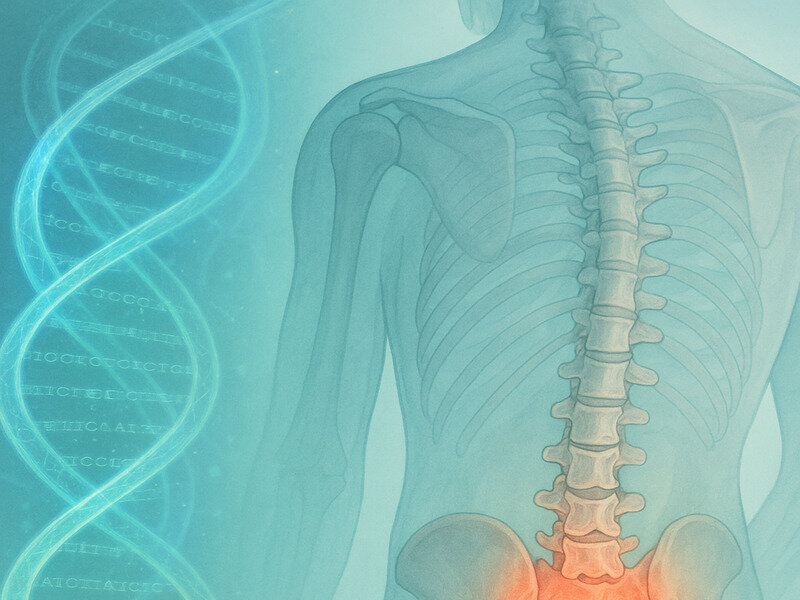
Ankylosing spondylitis (AS) is a chronic inflammatory disease primarily affecting the spine and sacroiliac joints. It can lead to severe, chronic pain and discomfort. Understanding the genetic factors that contribute to the risk of developing AS is crucial for early diagnosis and management. This article explores the genetic influences on AS, including key genes involved, their mechanisms, and the implications for individuals with a family history of the disease.
Understanding Ankylosing Spondylitis
Ankylosing spondylitis is a form of arthritis that primarily affects the spine, although other joints can also be involved. The hallmark feature of AS is the inflammation of the sacroiliac joints, which can lead to fusion of the vertebrae over time. This fusion results in a loss of flexibility and can cause a hunched-forward posture.
AS is more common in men than women and typically presents in late adolescence or early adulthood. The prevalence of AS varies globally, with higher rates observed in Northern European populations.
The Role of Genetics in Ankylosing Spondylitis
Genetics play a significant role in the development of ...
Premium preview
Premium members unlock the full article—complete step-by-step routines, deeper coaching notes, and exclusive frameworks.


